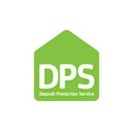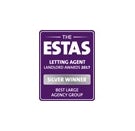Round one of the selective licensing scheme is over. Round two of the scheme will start soon. This blog will explore the new licensing scheme for private landlords in Nottingham.
The Current Licensing Scheme For Private Landlords In Nottingham
Round one of selective licensing was introduced by Nottingham City Council in 2018 to address a range of issues associated with the private rented sector (PRS) in certain areas of Nottingham. The council implemented the scheme in specific areas where there were concerns about housing quality, management standards, and antisocial behaviour.
The key objectives of selective licensing were as follows:
1. Improve housing conditions: The council aimed to raise and maintain the standards of privately rented properties to prevent substandard and unsafe living conditions for tenants.
2. Tackle anti-social behaviour: Selective licensing aimed to address anti-social behavior and ensure that landlords and managing agents actively managed their properties and dealt with any issues promptly and effectively.
3. Promote community cohesion: The scheme aimed to create better communities by reducing crime, improving the local environment, and encouraging responsible tenant and landlord behaviour.
Details of the New Selective Licensing Scheme
Because a licence lasts for 5 years, the first round of selective licensing has now concluded and is being replaced by a secondary round. On December 1st 2023, the second round of Nottingham selective licensing will begin.
Do I need to get a licence?
- 90% of private rental properties in Nottingham require a licence.
- Selective licences are applicable for properties with sole occupants, two unrelated occupants, or family units.
- If tenants do not fit into any of the aforementioned categories, another type of licence may be required.
- Portfolio landlords or owners of multiple properties need one licence per property and cannot transfer it to another property.
If you wish to view the proposed designation and check if your property is within the proposed area, please click here or visit Nottingham Insight Mapping, under the ‘Housing and Property’ layers.
Cost of a licence
The price of a selective licence for round two has not yet been confirmed by the council, but the previous fees were as follows:
| Individual Property Licence Fee(s) | Non-Accredited | *Accredited with DASH or Unipol/ANUK |
| Total Licence Fee | £890 | £670 |
| Part A fee | £520 | £485 |
When can I get a new licence?
If your current licence has expired, you don’t need to apply right away. Starting from September 2023, the Council has stated that they will be improving the application form to make it faster and easier to apply. If your current licence is still valid, you only need to apply for a new one once it expires.
Licences are given for individual properties so you will need one for each property that you rent out. They can’t be transferred between properties or people either, so a new owner needs a new licence too.
What our expert says:
Lloyd Rumbold, director of Belvoir Nottingham group said: “I attended multiple meetings with the council regarding selective licensing when talks of the scheme first came into play. Myself, as well as other landlords across Nottingham were initially reserved about the scheme, and wondered how it would affect rental yields.
We then noticed that after a short time of the licences being implemented, there were unprecedented property valuation increases in Nottingham and rent increases of up to £100 pcm. Although we can’t know for sure that the same thing will happen again, I’m confident in saying that selective licensing will have an increase in the level of return on investment over and above normal inflation.”
Guidelines for complying with the scheme
The guidelines for being compliant with the scheme include the following points, please note that all landlord with a rental property fully managed by Belvoir are all automatically compliant, as Belvoir ensures these points are all covered, as part of our service:
- Gas Safety Certificate dated in last year.
- Electrical Installation Certificate dated in the last 5 years.
- Smoke alarms / fire detection systems installed on each floor and working.
- Testing certificates recorded for Emergency Escape Lighting (if applicable)
- Carbon monoxide detector installed in every room which contains a solid fuel burning combustion appliance.
- Maintenance issues are responded to in a reasonable time with a 24-hour contact number to be given.
- The property is kept in a good state of repair and free from significant hazards that could affect the health and safety of tenants, occupiers and visitors to the property.
- The exterior of the property is maintained in a reasonable decorative order and in a good state of repair.
- The exterior of the property and boundary walls, fences and gates etc. are kept free from graffiti.
- Ensure gardens, yards and other external areas are within the boundary of the property.
- Ensure the property is secured.
- Provide window keys when required
- If there is a burglar alarm, a code and instructions to be given.
- If previous tenants have not provided the keys back, arrange for the locks to be changed.
- Provide written information to tenants on refuse collection day, what type of bin to use, details of the Council’s bulky waste collection, ensuring that council bins have been provided
- The tenants have a right to quiet enjoyment of the property therefore 24 hours written notice before you enter the property unless in an emergency.
- Carry out inspections every 6 months and keep written reports.
- Provide written information on how to contact the landlord regarding a complaint.
- Respond to complaints within a reasonable time.
- Provide the tenant with a copy of the licence.
- Provide copies of the current gas, electrical safety and energy performance certificates
- Provide a written copy of the tenancy agreement
- References are from each tenant
- Provide a written statement about tenants’ responsibility for not causing anti-social behaviour and that breach of the requirement may lead to eviction. In doing so all reasonable and practical steps are taken to prevent or reduce anti-social behaviour. Provide a written statement on how this will be dealt with. Also investigate anti-social behaviour when complaints are made and inform relevant authorities.
- Suitable buildings insurance is in place which should rehouse a tenant. This should cover the costs of re-housing occupiers in the event of the need arising.
- Carry out an inventory check before the tenant moves in. Document with photographs and have the tenant sign it
- Provide a tenant with information on the deposit scheme used.
- Inform the council of any changes to the licence holder’s details, including: address, change of management or ownership, anything that could affect their ‘fit and proper person’ status, any proposed changes to the layout of the house
- The licence holder must ensure they are undertaking relevant training at least once every 3 years. This could be through a us or other bodies such as DASH or EMPO or NCC
- Ensure relevant documents are submitted to the council on request
Learn more
Visit the Nottingham City Council website to apply for a licence and read more about the scheme.










